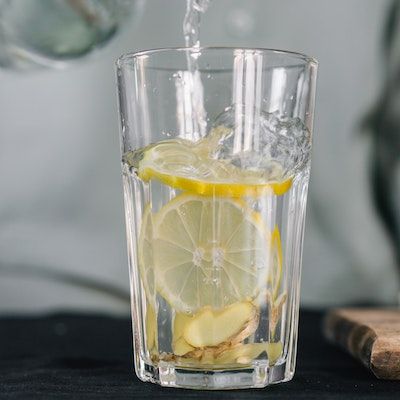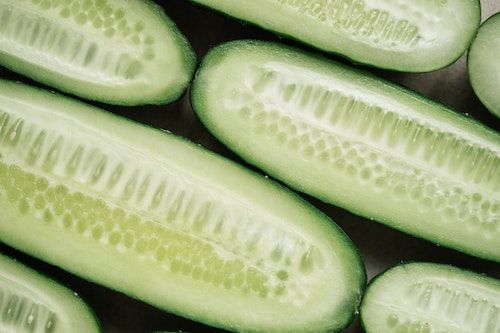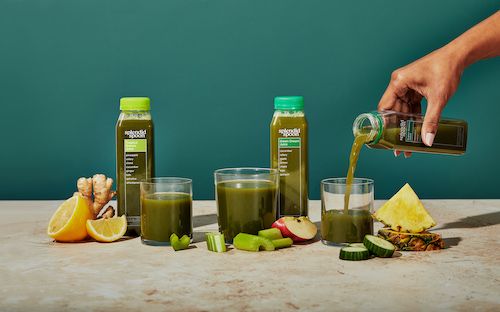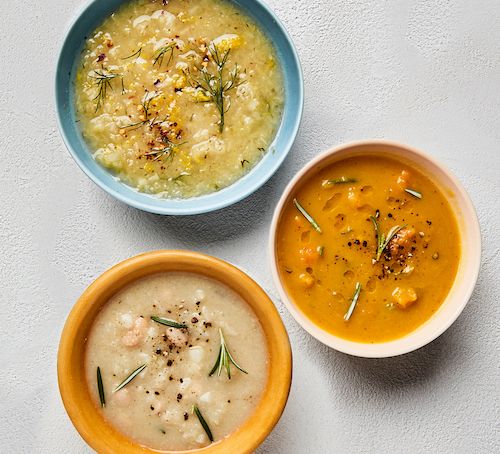According to holistic health coach MaryAnn Jones, thirst may be the last symptom of dehydration. “Lots of us are used to being dehydrated,” says MaryAnn. “Most of my clients report that they didn’t realize how thirsty they were until they began to prioritize hydration.”

We all know that hydration matters, but staying hydrated doesn’t just have to mean drinking 8 glasses of water a day. Learn how to hack hydration through the foods you eat! We asked our registered dietitian Johane M. Filemon, MS, RDN, CLT, to fill us in on hydration recommendations, and how to best incorporate hydrating foods into our diets.
First off, how much water should we aim to drink per day?
JF: Because everyone’s activity, height, and weight are different, hydration calculations are not as accurate as people think they are. For example, an athlete who is hydrating based on height and weight alone is not taking into consideration how much fluid is being lost during workouts each day, which is hard to measure. The best way to measure hydration is by looking at urine color. Clear to light yellow colored urine is the best indicator of hydration.
What are the most hydrating foods we can add into our diets?
- Cucumber
- Lettuce - romaine, iceberg
- Celery
- Tomatoes
- Zucchini
- Melon - like watermelon & cantaloupe
- Spinach
- Strawberries
- Grapefruit
- Bell peppers

Incorporating liquids like soups, bone broths, smoothies, and juices as a regular part of your diet will also help to get some extra water into your system.
“A day of light soups with lots of fluids in between is a good way to promote hydration,” says Johane. “It can also help start a lifestyle of whole food consumption.”

How does hydration affect our physical and mental health?
MaryAnn says: “I often use a visual of prunes and plums to explain this. What’s the difference between the two? Water! This prune-like effect can manifest inside and outside our bodies. Physically, your skin might not be as glowy as you desire, and your joints might ache. Mentally, being hydrated helps your brain function properly.”
Other Benefits of Hydration
Gut Health, Skin That Glows, and Mental Clarity
If you read our advice from HUM Nutritionist, Gaby Vaca-Flores, you know that staying hydrated can also benefit your gut health. Your gut depends on proper hydration to be well-functioning. It can have a positive impact on the mucosal lining of the stomach and intestines.
Our skin’s hydration starts from the inside out. Making sure you are fully hydrated can have excellent benefits for your skin.
“I often use a visual of prunes and plums to explain this,” MaryAnn tells us. “What’s the difference between the two? Water! This prune-like effect can manifest inside and outside our bodies. Physically, your skin might not be as glowy as you desire, and your joints might ache. Mentally, being hydrated helps your brain function properly.”
Top Tips to Stay Hydrated
- Eat hydrating foods. Adding in those top 10 hydrating foods with high water content will hydrate while providing tons of nutrients as well.
- Add Green Juices to your daily routine. Not only do they help with hydration, they promote digestion, and are shown to give a boost of clean energy too, not to mention an easy way to get in those greens.
- Try out a day of Light Soups. Our five Light Soups are designed to reset your digestive system in one day. Learn more about the additional benefits of our Reset Day here!
- Get a reusable water bottle. Bringing one with you everywhere makes drinking water accessible throughout the day.

Questions? Email us at hello@splendidspoon.com. Ready to get started with deliveries of healthy, plant-based meals to help you reach your health goals? Sign up for one of our plans today!
